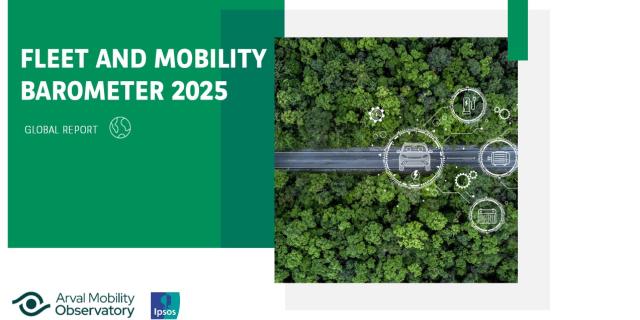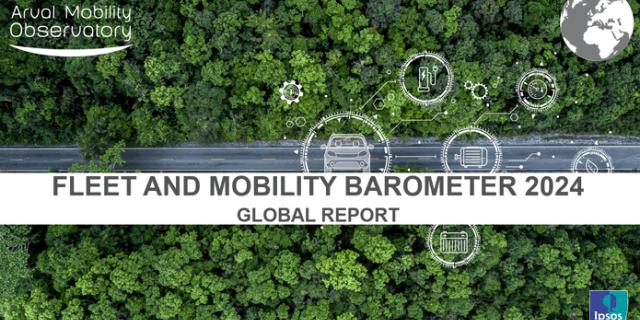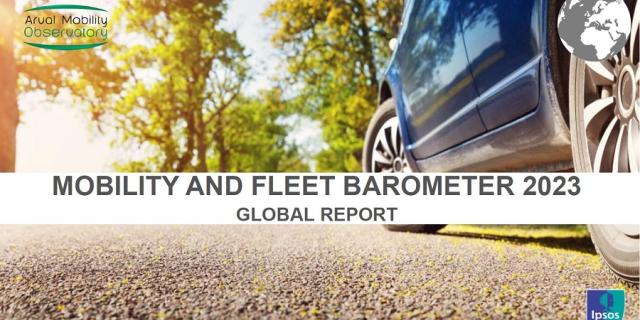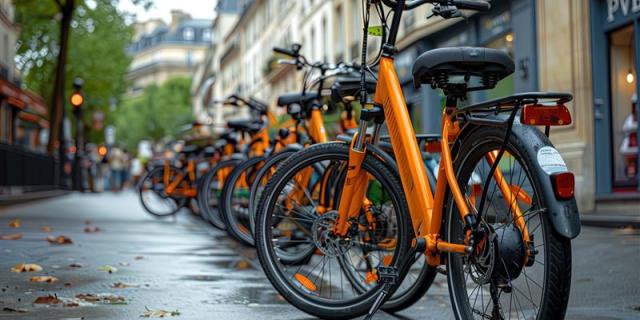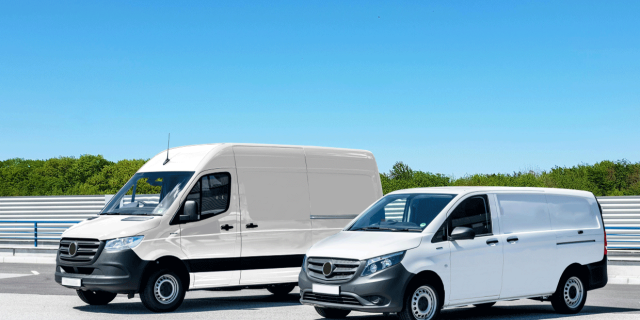BETTER UNDERSTAND HOW SMES MANAGE THEIR FLEET
Arval Mobility Observatory has released its latest SME Fleet Barometer. Lakshmi Moorthy, Arval Retail Director, comments the research and the sector in general.
Can you please tell us about the SME business scene described in the Arval Mobility Observatory Barometer 2019?
This sector is currently very dynamic. SMEs continue to be a vital and growing part of the economy in many countries. Changes in work patterns and technology mean that more and more people are also working on a self-employed basis, in almost every country Arval operates, the SMEs and self-employed professionals is the area of the economy that is showing the most growth.
What characterises SME fleet decision makers?
In our experience – and we tend to work at the smaller end of the sector – it is defined by its practical approach. Smaller businesses want business transport that is efficient and competitively-priced so as to enable them to get their work done. They don’t really seek the type of strategic support that our larger customers value. Their decisions are driven largely by day-to-day needs to keep their business/profession running.
The 2019 Fleet Barometer shows that businesses are confident about future fleet growth. Why is this?
These are companies that often reinvest their increasing revenues and any growth in output tends to be immediately reflected in their transport needs. A business with 500 vans that wins a new customer could meet their changing requirements from more efficiently utilising the existing fleet while an operation with two vans might need to buy a third if it sees its business growing. It’s a whole different mindset - they immediately plough back their returns into further growing their business.
The research suggests that SMEs are holding their vehicles for shorter periods of time. What are the reasons for this trend?
One factor is the increased use of leasing over time, which tends to operate on a shorter, fixed term basis than outright purchase. Another is the speed of development of the technology found in today’s cars and vans, with customers probably wanting to change more often to avail of the latest technologies available.
The Fleet Barometer shows that 26% of businesses with fewer than 10 employees are interested in implementing hybrid or electric vehicles during the next three years but only 8% out of those have already adopted them. Will this gap be closed?
The reasons for the difference between interest and actuality are understandable. If you operate 100 petrol vehicles, adding a couple of EVs and hybrids to see how well they work for you in operational terms is a marginal risk. If you operate five vehicles, buying two EVs is a much greater commitment and with future values of EVs being untested with so many new models, technologies, maybe SMEs don’t want to purchase EVs (but may be willing to test them if other schemes were available).
There are other reasons as well – maybe the SMEs want to test these technologies but lack liquidity at that point, or maybe it’s due to the supply of EVs which improves progressively. However, adoption will ultimately happen, we believe, it will just be slower than in larger companies.
Another finding of the report is that 31% of SMEs are interested in using alternative mobility solutions such as car sharing, ride sharing, a mobility budget or private lease and consider to use in the three coming years or have already implemented at least one of this solution.
That figure in the report was interesting. Our feeling is that there is probably quite limited awareness of these mobility services among SMEs although, in some big cities, there is use of car clubs and so on. The crux for small businesses and self-employed professionals is that their transport needs are driven on a practical basis. If you can show them a better way of carrying out a journey, they will use it – but it won’t be due to CSR considerations, rather it has to concretely meet their business continuity needs in a practical manner. As with EVs, we expect this situation to develop in the longer term but not as rapidly as in big organisations.
Penetration of telematics tools into small businesses remains low with only 11% of SMEs using them. Do you believe this will change?
The fact is that most current telematics solutions present very limited benefits for small businesses. There are some advantages present, for example in cases where, if you operate a few vans, you may want to make use of route planning to improve efficiency. However there is indeed less interest in telematics among very small fleets or self-employed professionals who today don’t see any merit in telematics offerings today – if we can develop features that make sense for this segment, SMEs may change their mind.
The Fleet Barometer shows that SMEs still often turn to car dealerships and banks as a way of collecting information about their vehicle purchasing. Why is this?
In some ways, small businesses behave much more like individuals than big businesses. They might be interested in – and use – digital services but they also value face-to-face relationships highly. Many of them want to go and visit the car dealer and get the advice of their bank manager.
The car or van is a practical purchase for them but also an emotional one, being closely linked often to their business continuity. This is a major purchase and they want to feel as though it has been properly researched and the right decision is being made.
The research shows that, over the past five years, the number of small businesses using operational leasing as their main financing method has increased from 9% to 13%. Why is this happening?
Every year when we carry out out research, we find that operating leases have grown in popularity once again. The reasons for this are straightforward – this type of leasing offers low, fixed costs and predictability. To a great extent, it frees SMEs and self-employed professionals to get on with what their business does rather than worrying about financing their vehicles.
In a world where all kinds of products are now bought on a usage rather than an ownership model, from mobile phones to Spotify, operational leasing makes an increasing amount of sense to an increasing number of people.




